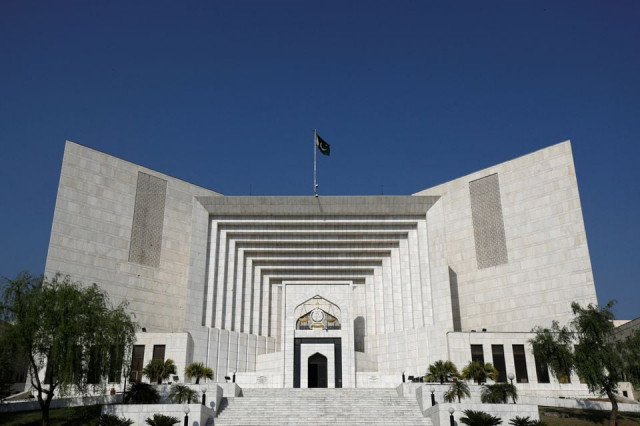Can judicial commissions be sought before approaching statutory bodies, asks SC
SC poses nine questions for adjudication in JI's plea seeking probe against 436 individuals named in Panama Leaks

In a written order issued on Thursday, a division bench of the Supreme Court led by Justice Sardar Tariq Masood posed nine questions for adjudication in the case pertaining to Jamaat-e-Islami's (JI) petition seeking an investigation against 436 individuals named in Panama Papers for allegedly stashing their wealth in tax havens across the world through offshore companies.
“One family from among 436 people [named in the leaks] was singled out,” Justice Masood had noted during the hearing last week. “It is not a crime to create an offshore account,” he added.
In the written order the bench questioned how and under what circumstances this petition was de-linked from other petitions at JI’s counsel’s request. For what purpose was this done, asked the court, noting that this petition of JI was filed much earlier than other petitions which were later decided on by a five-member bench of the apex court in a separate case resulting in the disqualification of former prime minister Nawaz Sharif.
The court further asked whether the matter of evading taxing was not covered by the Income Tax Ordinance 2001 (Ordinance 2001) and whether the liability of tax does not fall under the purview of officers of the Federal Board of Revenue given the Ordinance.
Moreover, the bench asked whether the State Bank of Pakistan (SBP), directions of the SBP and the Foreign Exchange Manual were not relevant with regard to the money sent abroad for the purchase of properties in question.
Read New review law stuns top court
The written order penned by Justice Masood further asked about relevant departments, including the Federal Board of Revenue (FBR) and State Bank of Pakistan, own “hierarchy for deciding matters and their final orders” which may ultimately be challenged before the High Courts or the apex court?
Following up on this, the SC questioned whether the petitioner had approached the SBP, FBR, the Anti-Corruption Establishment (ACE), the Federal Investigation Authority (FIA) and other relevant departments against the individuals named in the Panama Leaks?
The bench asked that when the aforementioned statutory bodies and institutions exist, should a commission have been constituted as sought by the petitioner(s) for inquiring into the matter at hand? “Will the working of the said statutory bodies not be affected if the proposed commission opines otherwise?” inquired the bench?
Lastly, the SC’s bench asked: “whether an order for the constitution of a commission can be passed without issuing notice to or hearing those 436 persons named in the Panama Leaks”. The court has given the party one month to answer these questions.
In April 2016, the Panama Papers, a treasure trove of leaked documents, disclosed how thousands of people across the world had stashed their wealth in tax havens through offshore companies. The papers included names of 436 Pakistanis including the family members of Nawaz Sharif.
Read more CJP blows holes in review law
A number of petitioners including Pakistan Tehreek-e-Insaf (PTI) chief Imran Khan and Jamaat-e-Islami (JI) chief Sirajul Haq filed petitions in the apex court. Later, a five-judge SC bench on July 28, 2017 disqualified the former premier for not disclosing the salary that he received from a company owned by one of his sons in his nomination papers submitted before July 2013 general elections.
JI had filed a petition seeking an investigation against 436 Pakistanis named in Panama Papers leaks and the hearing for that was held last week on June 9. Advocate Tariq Asad also filed a similar petition in 2017. However, Advocate Tariq Asad has passed away. The last hearing of the case was held on November 23, 2017.
This case is separate from the Panama Papers proceedings in which then prime minister Nawaz Sharif was disqualified from holding public office. At that time a joint investigation team was formed and the proceedings were monitored by the court.
At the hearing on June 9, when asked about the de-linking of petitions, JI counsel Muhammad Ishtiaq Ahmed Raja, had replied that the matter concerned public money. The counsel had informed the court that while the investigating agencies had issued notices to 436 individuals at the time, no headway was made.
At this, the court had reminded the counsel that when JI separated its cases, investigating agencies had furnished their replies before the court.



















COMMENTS
Comments are moderated and generally will be posted if they are on-topic and not abusive.
For more information, please see our Comments FAQ